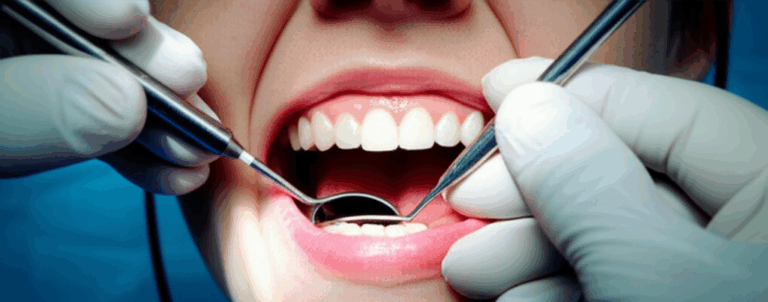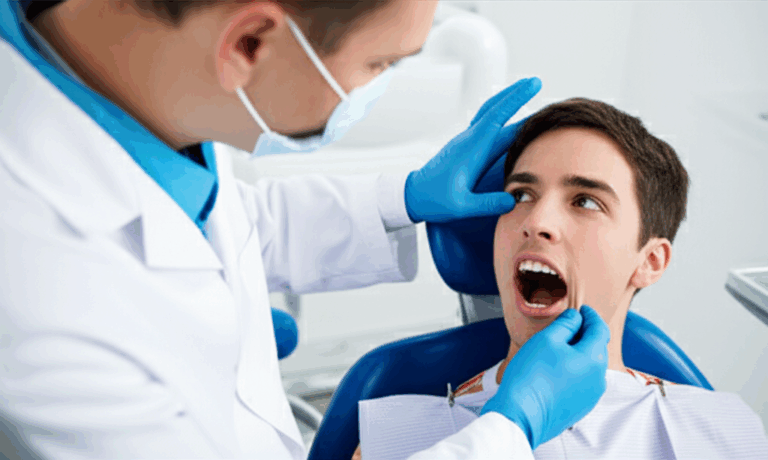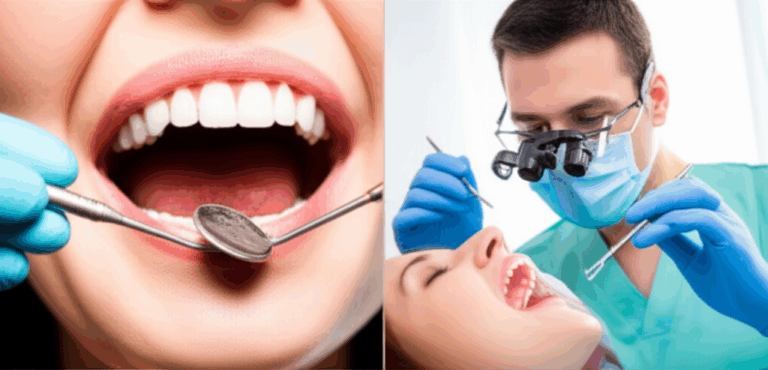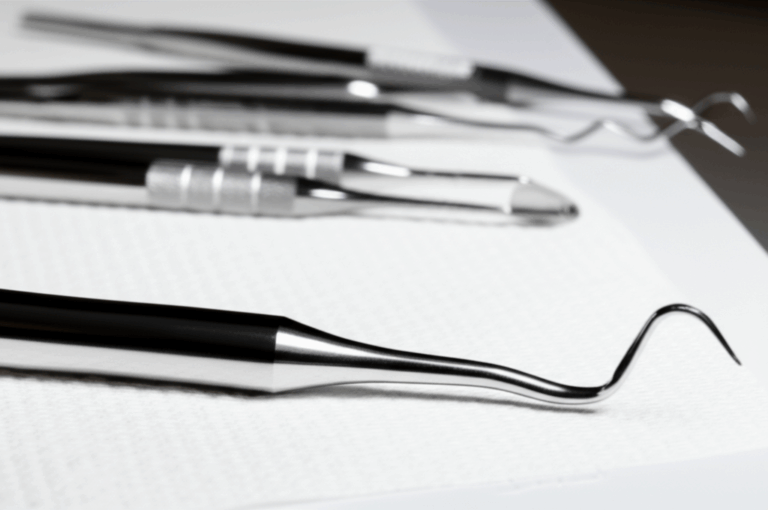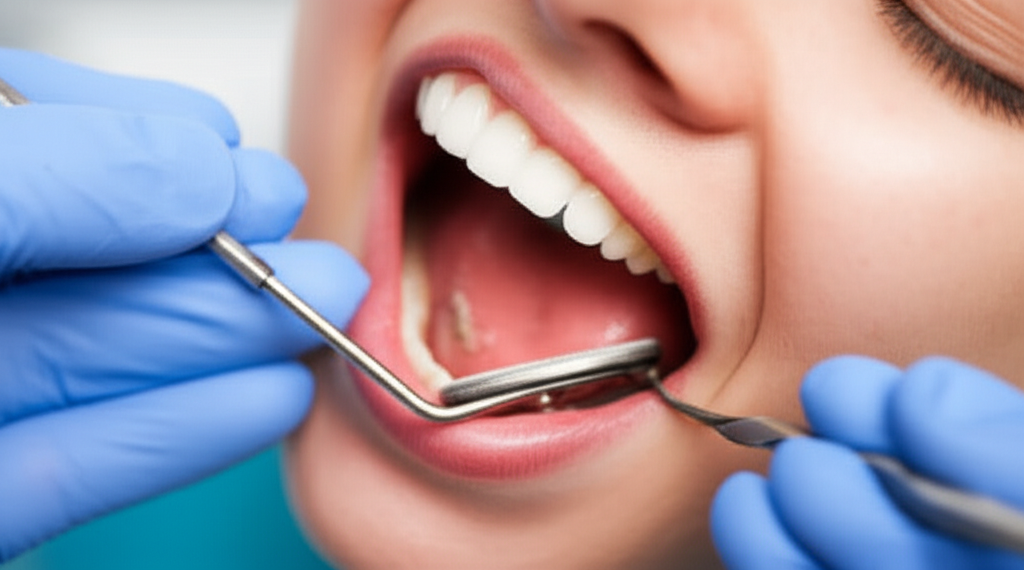
Can a Dentist Diagnose Oral Thrush? My Firsthand Guide to Getting the Right Diagnosis and Care
Table of Contents
- Clinical Exam: What Does a Dentist Look For?
- Medical and Medication History: What Really Matters?
- Tests: When Are They Necessary?
- Antifungal Medications and More
- When Do Dentists Refer You to Other Professionals?
Introduction: My Past Experience with Oral Thrush Concerns
If you’ve ever seen white spots in your mouth and wondered what was going on, you’re not alone. I remember the first time a family member called me, worried about a “creamy, odd coating” on their tongue. Their main question was simple: Should I see my dentist or call my regular doctor? That’s when I saw how many people aren’t sure what their dentist can help with, especially about things like oral thrush.
Here’s my straight answer from both my personal and work experience: Yes, your dentist can absolutely spot oral thrush—and a lot of the time, they’re the best place to start.
Let me show you what oral thrush is, how dentists look for and deal with it, and why you don’t have to worry about seeing your dentist if you think something’s wrong. I’ll also share what really happens in the chair, what treatment is like, and the main signs you should watch out for.
Understanding Oral Thrush: What It Is and Why It Matters
Oral thrush—also called oral candidiasis—is really just a yeast infection caused by a fungus named Candida albicans. That might sound fancy, but it’s a pretty common problem.
I often see it when your mouth’s normal balance gets off. Sometimes you just took antibiotics, or maybe you got dentures for the first time, or you’ve been using an inhaler with steroids. People with diabetes, a dry mouth, and those whose immune systems are weak (like if you have HIV/AIDS or are getting cancer treatment) are most likely to get it.
The most obvious sign? Those soft, white patches. They kind of look like cottage cheese and show up on the tongue, cheeks, or the roof of the mouth. Try to wipe them away—they’ll usually leave red, sore skin that can sting. Some people notice changes in taste or even feel sore or a burning feeling. Sometimes, you see cracks at the corners of the mouth (angular cheilitis). For folks with dentures, the gums under them can get red and sore.
Oral thrush can be a little uncomfortable or really painful. If you don’t do anything, it doesn’t just go away—in people with health problems, it can even spread beyond the mouth.
The Big Question: Can Your Dentist Diagnose Oral Thrush?
Here’s what I tell everyone who asks: Yes, a dentist is totally trained and able to see if you have oral thrush.
I say this with a lot of confidence. During every dental check-up, dentists don’t just look at your teeth. We spend a big part of your visit checking the cheeks, tongue, roof of your mouth, gums, and even your throat. In my experience, not many people realize that dentists do so much more than just look at teeth. Mouth health means more than just fillings and crowns.
Dental pros learn how to spot all kinds of problems in the mouth. We’re taught about mouth diseases in school and through extra learning. Fungal infections, like thrush, are basic things we look for.
I’ve probably found more cases of oral thrush in the office chair than I can remember—especially after a patient starts a new medicine, gets a new medical problem, or just got dentures.
So, if you go to your dental appointment with strange white patches, you can trust your dentist to figure out if it’s thrush just as well (sometimes faster) than a medical doctor.
How Dentists Diagnose Oral Thrush: The Inside View
You might wonder, “Okay, but how will my dentist know if it’s really oral thrush and not something else?” Let me explain how I—and most dentists—look at it.
Clinical Exam: What Does a Dentist Look For?
First, I always start with a good look inside your mouth. In most cases, those white, creamy spots are pretty clear, especially when they scrape off and leave red, sometimes bleeding places underneath.
Here’s what else your dentist checks for:
- Where the white patches are (tongue, cheeks, roof of the mouth, back of the throat)
- If the spots come off when scraped (that’s common for thrush)
- Red or sore places
- Cracks at the corners of your mouth (angular cheilitis)
- Signs of sore spots under dentures
Dentists know how to tell thrush from other things, like leukoplakia (which doesn’t scrape off), lichen planus, or even early signs of mouth cancer. If you want to see how dentists also help fix teeth, you might like seeing what a dental ceramics lab does to make real-looking crowns and false teeth—just another way dentists do more than people might think.
Medical and Medication History: What Really Matters?
The next thing I do is talk to my patients about their history. Here’s where you’ll answer questions like:
- Did you just take antibiotics or steroids?
- Do you have medical problems, like diabetes or a weak immune system?
- Do you use dentures or other things in your mouth?
- Do you smoke?
- Any new medicine lately?
This part is very important, because knowing the reasons you might get thrush helps me treat you the right way.
Tests: When Are They Necessary?
For easy, “usual” cases—the classic white patches that scrape away—most dentists don’t need to do extra tests. But if things look strange, or if the thrush doesn’t get better at first, we might take a mouth swab or hardly ever, a small piece for a look under the microscope. This checks the diagnosis and makes sure it’s not something else.
I remember once, a new patient’s strange mouth spots turned out to be something a lot more serious after a biopsy. That almost never happens, but it made me pay even more attention every time I check someone’s mouth.
The Next Steps: How Dentists Treat and Manage Thrush
After we know it’s thrush, what happens next? Here’s what I usually do—and what you should expect from any good dentist.
Antifungal Medications and More
Treatment starts with medicines to fight fungus. Depending on how bad the thrush is and your health, I might prescribe:
- Topical antifungals like Nystatin mouth rinse or Clotrimazole lozenges
- Systemic antifungals like Fluconazole, if the infection is bigger or doesn’t get better with the usual medicine
I always make sure to explain how to use these medicines—thrush can be tough, so it’s important to finish them all.
But just medicine won’t help if the main reason isn’t fixed. That’s why I always tell people:
- Brush and floss well every day
- Clean and take dentures out overnight (if you use them)
- Deal with dry mouth, maybe with some special mouthwash or sugar-free gum
- Rinse with water after steroid inhalers for asthma or COPD
- Try to quit smoking and eat less sugar—fungus loves sugar
And if you want to see what goes into making dentures, take a look at what a removable denture lab does behind the scenes.
When Do Dentists Refer You to Other Professionals?
Sometimes oral thrush means there’s more going on. If your thrush is very bad, comes back again and again, or spreads beyond your mouth, I might send you to your regular doctor or a specialist. This is important if I think you could have something like diabetes, a vitamin problem, or a weak immune system.
And really—sometimes just treating your mouth isn’t enough. Fixing the main problem usually takes a team effort between dental and medical people.
Dentist vs. Doctor for Oral Thrush: My Honest Advice
I get this question a lot, even from close friends: Who should I see first—my dentist or my regular doctor?
My answer? Most of the time, either is fine. Both know how to spot and treat oral thrush.
But there’s a good reason to see your dentist, especially if you already have regular checkups. From my experience, dentists are great at catching small changes in your mouth, figuring out if it’s thrush, and starting treatment fast. If there’s something bigger, we know when to send you to the doctor for more tests or to work together.
If you’re someone who wants their mouth gear to last and work well, check out what a dental lab for retainers can do for even the basic dental gear.
Preventing Oral Thrush: Tips I Share with Everyone
After you’ve had oral thrush once, you probably never want it again. Here’s what I always tell my patients to help stop thrush before it starts:
- Take care of your mouth. Brush and floss every day, and brush your tongue!
- Clean your dentures every day. Soak them overnight, and give your mouth a break while you sleep.
- Rinse after you use inhalers. A quick water rinse makes a big difference.
- Control health problems. If you have diabetes, keeping it in check helps a lot.
- Quit smoking. It raises your chance for thrush and lots of other mouth trouble.
- Cut down on sugar. Fungus uses sugar to grow—less sugar means less risk.
Doing these things gives you the best shot at not dealing with thrush again.
Case Study: Real Stories from the Dental Chair
Let me give you a real example to show how easy the process can be.
A patient—let’s call her Susan—came in for her usual cleaning. My assistant saw some white, sticky patches on her cheek and roof of the mouth. When I looked and saw they scraped off and showed red skin, I knew it was classic oral thrush.
Susan had just finished antibiotics for a tough cough—which is a big clue because antibiotics can mess up the balance between good bugs and yeast in your mouth. I gave her a prescription for Nystatin, showed her how to use it, and told her to eat some plain yogurt or a probiotic. Ten days later, at her follow-up, Susan’s mouth looked healthy again. No more patches—and no more worry.
The Evidence: Data and Research that Back it All Up
What I see in the office matches the bigger research on oral thrush. Here are a few things that stand out:
- Research says somewhere between 20-75% of healthy people already have Candida in their mouths—most don’t even know it.
- Oral thrush is more common in denture wearers (10-20%), people who are older, or whose immune systems are not strong. Among people with HIV/AIDS, up to 90% can get it at some point.
- Dentists are often the first to spot oral thrush, with studies showing over 60% of cases found by dentists first.
- For usual thrush, just looking at it and talking about the symptoms is good more than 85% of the time. Special tests are needed only when something seems off.
- Antifungal medicine, when given by dentists, works fast. Most people feel better and clear up in 1-2 weeks.
- If thrush keeps coming back or is very bad, about one third of these people get sent for more health checks to see if there’s a bigger problem.
Nothing beats having someone trained look at your mouth—especially when it’s about your health and feeling good.
Final Thoughts: Why Your Dentist is Your Partner in Oral Health
When it comes to oral thrush, your dentist is not just the tooth person—they’re your partner for keeping your mouth (and even your whole health) in good shape.
I treat oral thrush all the time, and it’s always great to see the relief on someone’s face when we figure it out quickly and get them feeling better. Dentists have the training, tools, and know-how to spot thrush fast and treat it right.
So, if you ever spot white patches in your mouth, don’t wait. Make an appointment. Your dentist is ready to help—usually quicker than you think. And if there’s something more going on, they’ll help you get the care you need.
Remember, your mouth is a window to your whole body’s health. Count on your dentist to help keep it clear.
Want to see more about what dental labs can do for you, from custom crowns to the newest tech in dentistry? Take a look at the world of digital dental labs to see how dental care gets better, quicker, and smarter.
If you have questions or think you might have oral thrush, just make the call. My experience says you’ll be glad you did—and your mouth will thank you.

